It’s normal for cat owners to wish that their frisky feline could speak to them. However, in actuality, they can! Cats speak in a myriad of vocalizations such hissing, purring, and, most of all, meowing. While it’s seemingly impossible for cats to learn the language of humans, it’s up to us to learn their language by understanding what each ‘meow’ variationmeans. Keep reading below to understand why cat’s meow, the intention behind each differing meow, and how we can better communicate with our feline’s by knowing this information.
Why Do Cat’s Meow?
Nearly 10,000 years ago, long before cats were domesticated, all feline’s lived and hunted as loners. When they did encounter another cat, however, they’d primarily communicate through scent or rubbing against each other. Unfortunately, our human scents aren’t as finely tuned or sensitive to the ways our cats interact, so they had to develop a different way to communicate with us.
To get what they wanted from humans, cats began to develop their meows as a communication tool to manipulate us. As all cats tend to meow as kittens to gain their mother’s attention, they generally outgrow this behavior after the first month. When a kitten passes into adulthood, the adult cat usually only meows when they’re trying to communicate with a human. When your furry friend is meowing at you, it could mean a host of different things, such as to:
- Simply say hi or to gain attention.
- Ask for food.
- Ask to be let inside or outside.
- Communicate pain.
In addition to the above intentions, cats may meow at us to communicate many more messages.
The Many Meow Sounds
Depending on the pitch, length, frequency, and volume of the meow, your cat could be trying to communicate something specific to you. Listed below are several differing meow sounds and what they may mean:
- Chirrup Meow: With a quick sound that’s between a purr and a meow, this means your cat is simply saying ‘Hi’.
- Short Meow: One step above a Chirrup, a short meow, or a series of short meows, could mean that your cat is excited to see you.
- Mid-Pitch Meow: Slightly longer than a short meow, although not too demanding, this could mean that your cat is thirsty or hungry and is asking politely.
- Chattering Short Meows: If your cat is meowing over and over again in short bursts, this could either mean that they’re extremely excited or that they’re feeling stressed and filled with anxiety.
- A Drawn-Out & Long Meow: Your cat is done being polite and the gloves are off. This type of meow may mean that your feisty feline wants something from you that you haven’t given them yet.
- Low-Pitch Meows: This type of meow usually indicates a complaint that your cat may have. Either they’re displeased, discomforted, or they urgently need something.
- High-Pitch Yelps: Being the most extreme meow, this usually means that your cat is experiencing pain, fear, anger, or immediately needs to tell you something.
When Meowing Becomes Too Constant
Most owners find it cute when their cat meows, although, some cats can become accustomed to chronically meowing in an effort to get what they want. To stop this unwanted habit, sprinkle some Dr. Bill’s Feline Cognitive Support right on their food to promote desired personality traits in your feisty feline. To help lessen your cats overall anxiety, Feline Cognitive Support provides 36-essential ingredients which aid in the maintenance of their healthy brain and nervous system functions. Dr. Bill’s Feline Cognitive Support has been proven to be superior in slowing the progress and potentially reversing signs of cognitive dysfunction, which can generally lead to chronic meowing if left untreated.
-
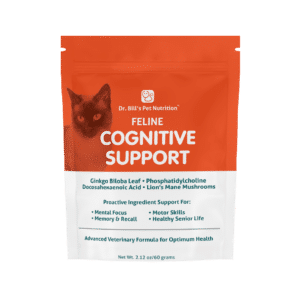 Feline Cognitive Support$30.95
Feline Cognitive Support$30.95

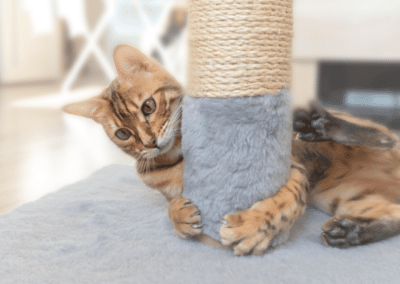
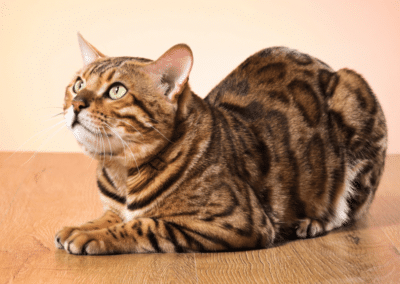
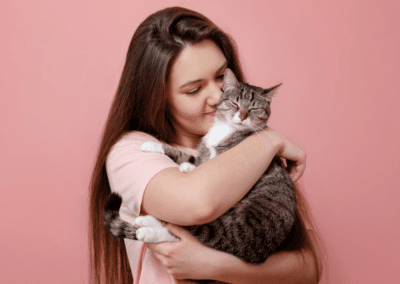
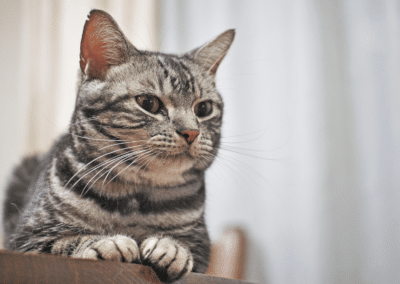
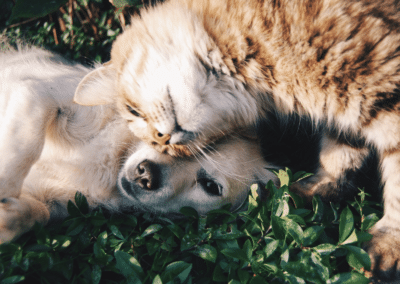


0 Comments